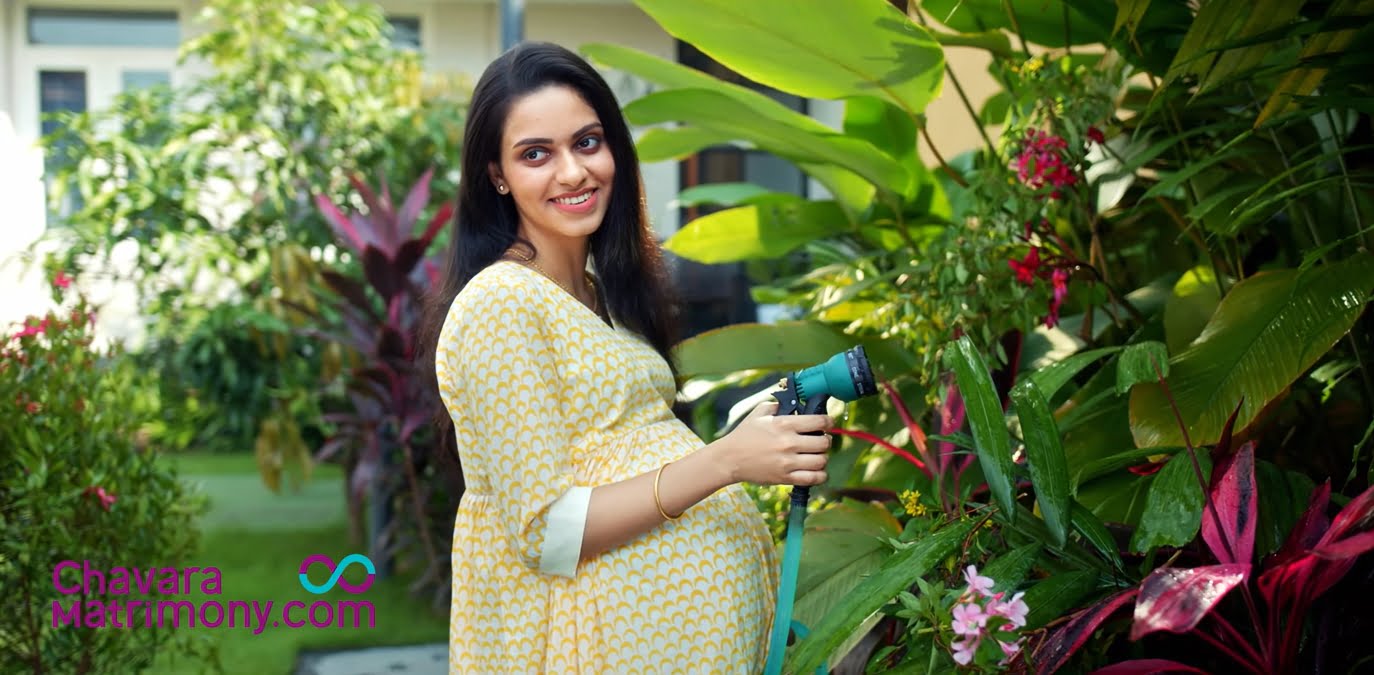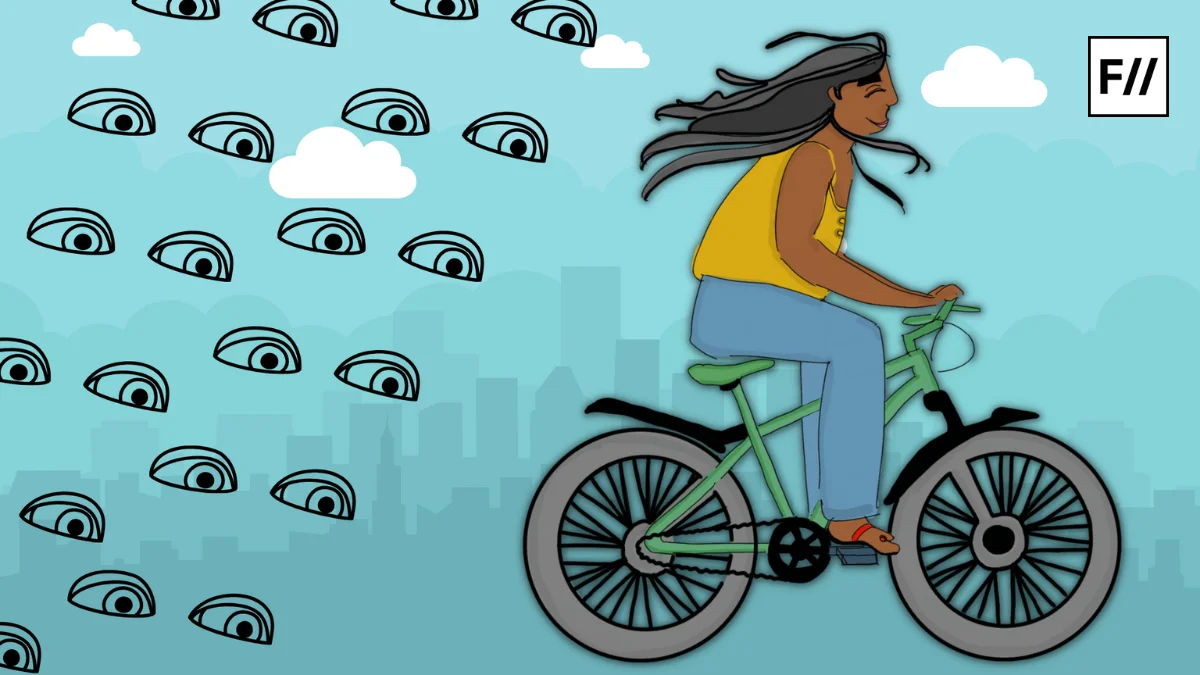The recent Chavara Matrimony advertisement directed by Jis Joy casts a woman who pursues her art without wanting to have children as ‘irresponsible’. The ‘flawed’ woman is portrayed as someone who’s not in the right mind to know what is best for her. It develops the subject into one who might be secretly yearning for children but in need of a man to talk some sense into her… thus projecting the idea that a man is the epitome of reason and logic. Her agency is depicted as a facade so the man facilitates her smooth transition from the selfish hysteria of not wanting children to the bliss of motherhood. Chavara Matrimony brought her the man who could save her from her own self-sabotage and he restored her dignity. Her labour at his home is shown to be honorable as opposed to her painting in the studio that needed to cease.
Being a woman who doesn’t desire to marry nor finds the need to decide right away whether or not I wish to parent a child, all I could feel from watching the advertisement was a warning of societal alienation for choosing the ‘deviant’ lifestyle. The continued misrepresentation of women like us as selfish and irresponsible causes heart-wrenching pain.
Also read: My Experience On Matrimonial Sites —The Cesspits Of Humanity
Being a woman who doesn’t desire to marry nor finds the need to decide right away whether or not I wish to parent a child, all I could feel from watching the advertisement was a warning of societal alienation for choosing the ‘deviant’ lifestyle. The continued misrepresentation of women like us as selfish and irresponsible causes heart-wrenching pain.
Equating the desire for a partner as an admission of wanting the mythical bliss of motherhood
The advertisement equates her choice to have a partner as equivalent to wanting to have children, as if marriage is a consensual submission of one’s agency. When only 8-16% of women in Kerala make decisions about her healthcare, mobility and household purchases, it is not shocking that most women admit to birthing the number of children as desired by the husband.
A woman’s need for a man is often established by her need for a provider and protector but protection from what? Other men like him? Statisticially speaking, a woman is more likely to be abused, beaten and murdered in her own home but that’s OK… because 69% of Kerala women also confirm that it’s absolutely acceptable for a husband to hit his wife if she doesn’t satisfy her wifely duties. His control over her reproduction can be implicit and invisible when her gendered subordination has already been established, insured by ‘cultural familiarity’. Is his domination ‘as natural’ as her motherly instincts?
The binary of happy housewives and angry feminists
The ad reflects society’s construction of motherhood as a state devoid of pain and anger, specifically to cast women as delusional for not desiring children. Women are burdened to find happiness in serving free emotional and physical labour as a wife to a man, as a mother to his children, as a homemaker for his ‘home’. She has to navigate the paradox of the mythical maternal bliss with her ‘natural’ motherly instincts and ‘intensive’ care. However, if she forgets to mask her pain with a smile, she is simultaneously pathologized with pre-natal anxiety, postpartum depression, maternal anxiety and mood imbalance as if it’s ‘unreasonable and irrational’ to fear the ordeal of childrearing, the isolation of mothering or the financial dependency or the vulnerability of emotional codependency that comes with it.
Feminists’ anger is delegitimized and misrepresented to sustain male domination because anger is transformational. They fabricated the image of a cynical, lonely and self-destructive feminist as a cautionary tale to coerce women into submission, out of fear and shame. Her agency invites sexualization and provokes violence so they simultaneously fetishize her pain and silence her anger.
Patriarchy doesn’t want us to see a feminist housewife so they pitted us against one another using the colonial binary of two exclusive categories, whilst also strategically posing domestic labour as ‘not work’ but a noble devotion that makes her worthy of respect. The Kulasthree who declares her fulfillment in ‘choosing’ to surrender into domestication does not want to admit that the game is rigged as long as she is convinced she’s winning.
Patriarchy doesn’t want us to see a feminist housewife so they pitted us against one another using the colonial binary of two exclusive categories, whilst also strategically posing domestic labour as ‘not work’ but a noble devotion that makes her worthy of respect. The Kulasthree who declares her fulfillment in ‘choosing’ to surrender into domestication does not want to admit that the game is rigged as long as she is convinced she’s winning.
Also read: Student Replies To Sexist Matrimonial Ad, Gets Rape Threats In Return
It isn’t a secret that tubectomy followed by childbearing has been a rite of passage for 90% of married women in Kerala because it grants them increased autonomy and decision-making power within families. So, that’s what it takes to go from being a walking-uterus to a half-human? So, we just need to cheerfully submit for the crumbs of social acknowledgement that comes from a lifetime of doormat living?




